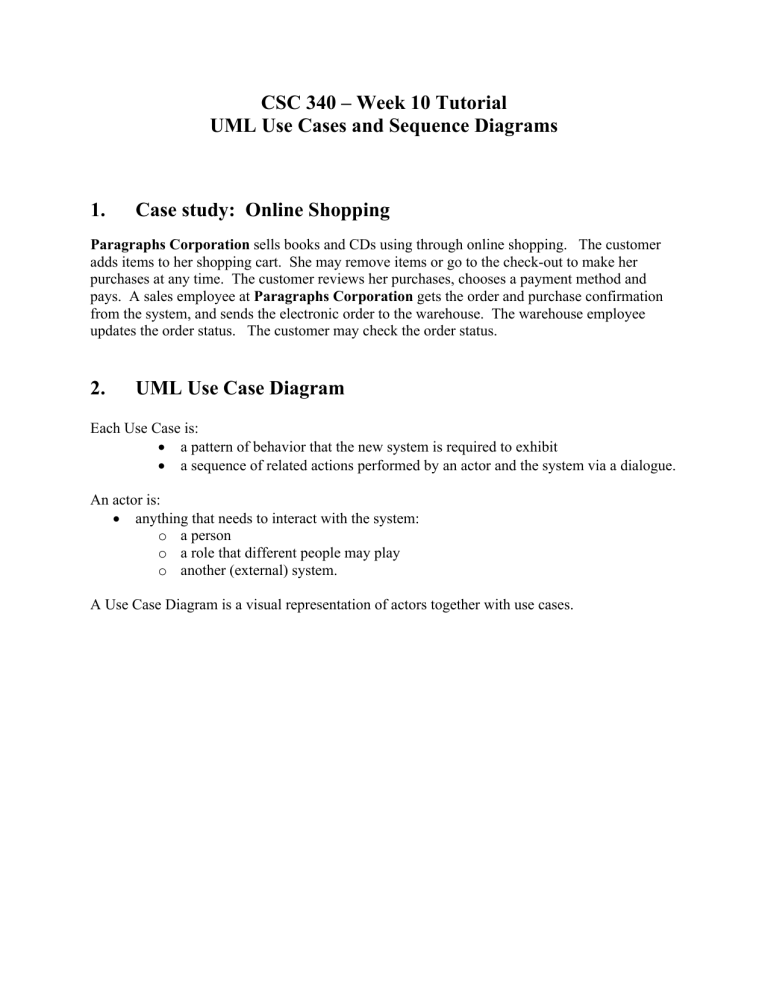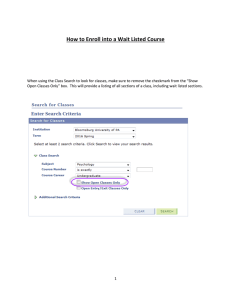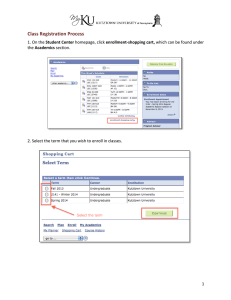
CSC 340 – Week 10 Tutorial UML Use Cases and Sequence Diagrams 1. Case study: Online Shopping Paragraphs Corporation sells books and CDs using through online shopping. The customer adds items to her shopping cart. She may remove items or go to the check-out to make her purchases at any time. The customer reviews her purchases, chooses a payment method and pays. A sales employee at Paragraphs Corporation gets the order and purchase confirmation from the system, and sends the electronic order to the warehouse. The warehouse employee updates the order status. The customer may check the order status. 2. UML Use Case Diagram Each Use Case is: • a pattern of behavior that the new system is required to exhibit • a sequence of related actions performed by an actor and the system via a dialogue. An actor is: • anything that needs to interact with the system: o a person o a role that different people may play o another (external) system. A Use Case Diagram is a visual representation of actors together with use cases. Review contents of cart * Remove item from cart * Add item to cart Warehouse Employee Update order status «uses» Notify warehouse about order Online Shopping System Purchase contents of cart Customer ** Verify payment Receive order Salesperson 3. UML Sequence Charts Sequence diagrams show step-by-step what’s involved in a use case • Which objects are relevant to the use case • How those objects participate in the function Online System Customer Salesperson Warehouse Employee *Add item [cartContents > 0] *Remove item Display cart [cartContents > 0] Purchase items in cart Receive order Verify payment [payment received] Notify about order Update order Get order status Credit Card Company

